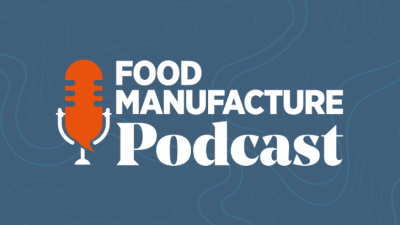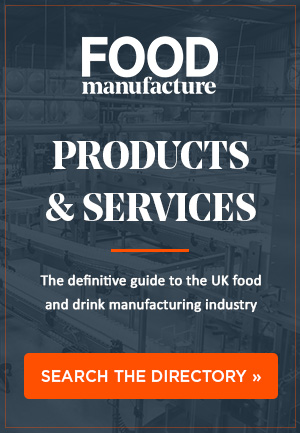Long read
7 big moments of 2023 for food and drink

1. More and more regulation
We’re seeing a vast amount of new regulation coming in, whether it’s UK-based laws, or external rules that impact those exporting to other regions around the globe.
One of the big messages from our October Business Leaders’ Forum was that the food and drink sector is currently overwhelmed with new laws. Not only is it costly but it’s not actually clear what’s required of them all the time.
This year we’ve seen some big proposals from the EU, which have been causing murmurs among industry players. One notable proposition are the potential changes to the EU Microbiological standards regulation 2073/2005.
As Karin Goodburn, director general of the Chilled Food Association, explained earlier in the year: the current law is fine…when it’s implemented properly. Now the EU is keen to change the law as a result of its high rate of listeriosis, but there’s concerns that this may cause unintended consequences.
As BFFF’s head of technical, Denise Rion, explained in an exclusive article for Food Manufacture: “These changes would mean that businesses would have to carry out challenge testing of products in order to set their shelf lives. And if challenge testing isn’t carried out, then Listeria would have to be non-detectable throughout the shelf life that is set.”
The EU has also brought in new environmental rules in an effort to prevent deforestation. In June, Regulation (EU) 2023/1115 on deforestation-free products came into effect. This mandates that any operator or trader who places certain commodities onto the EU market or exports from it, must be able to prove those products do not originate from recently deforested land or contribute towards deforestation.
However, there have been concerns aired around the methodology behind its benchmarking, with many calling for further clarity and transparency.
As reported back in July, food and beverage firms are already struggling to meet deforestation related KPIs set by environmental disclosure not-for-profit CDP.
More than 1,000 companies have reported actions to mitigate against deforestation during 2022, with the food and drink sector demonstrating the lowest levels of governance out of the four industries.
This year also saw the introduction of the Economic Crime & Corporate Transparency Act. This sets out a new corporate criminal offence of the ‘failure to prevent fraud’ and has been rolled out in response to the rising level of fraudulent activity.
According to legal experts, Tenet, fraud now accounts for 41% of all crime in the UK, yet many businesses do not have an anti-fraud policy in place.
One of the key aims of this legislation is to drive culture change towards improved fraud prevention procedures in organisations.
As for next year, we’re also geared up to see a big shift around novel foods following the UK Government’s announcement that it’s looking into how the process can be reformed and made easier.
Osborne Clarke’s Katrina Anderson says she expects the first steps towards a new streamlined process to become apparent in 2024.
2. Business consolidation
Administration, closures and quick company rescues continued to play a starring role this year.
Figures published in July painted a gloomy picture for food and drink, with insights firm Kroll revealing administrations had more than doubled in the first half of 2023 compared to the same period a year prior.
Speaking with a range of experts, Food Manufacture was told that the hardships of the current economic climate were, of course, having a big impact on the industry, but this had also been a result of oversupply – namely the plant-based category.
“There’s a period of consolidation that’s happening right now that needs to happen,” said Matthew Glover, managing director of Veg Capital which saved Meatless Farm from closure earlier in the year.
"A lot has been said regarding the plant-based market recently, it's clear and obvious that whilst it will see continued growth and demand, the level of early capital and emerging brands has saturated the space," added VFC CEO David Sparrow. "Unfortunately, as with Meatless Farm, without the right business model or partners who believe in your strategy we will continue to see consolidation."
Experts at the most recent Food Ingredients Europe (FiE) event echoed this, whilst reassuring that plant-based lives on.
“We did see a slowdown in the past year, but I do think it’s something that’s starting to grow again,” Bianca Lefevere, product manager for BENEO – which acquired Meatless B.V. last year – told Food Manufacture at the Frankfurt 2023 show. “With any innovation you have this ‘peak innovation time’ when people are jumping onto these new ideas.
“Now, in plant-based, we’re in this place where we’re getting out from this ‘dip’.”
ICL Food Specialities agreed that plant-based had firmly established its rightful place, but it has since diversified – and we can expect more exciting ventures to come in this category, including more plant-based ‘seafood’.
While many of the plant-based brands dominated administration headlines this year, with Heather Mill’s owned VBites the most recent (at time of writing), 2023 also saw other industries struggling, with many companies having to close (or consider closing) sites. Among the names were 2 Sister’s Llangefni; Typhoo Tea’s tea blending and packaging site in Moreton, Wirral; and Carlsberg Marston’s Brewing Company’s Wychwood Brewery in Winey, to name a few.
Taking Wychwood Brewery as an example, it’s evident that consolidation is more wide-spread than plant-based. Its chief executive explained that the combination of a competitive UK ale market and turbulent economic outlook were responsible for the news, but by consolidating its brewery network the company could achieve greater efficiency and productivity.
Moves like this will result in pain and disruption in the short term certainly, but in the medium term it could also save a business from complete shutdown.
3. Alcohol tax
August 2023 saw the UK Government restructuring the taxation of alcohol.
Six new standardised bands were introduced across all types of alcoholic products, with tax rates calculated on the nature of product and litres of pure alcohol.
While many of the changes are set to benefit the food service industry, businesses producing and importing goods for off-trade consumption will likely be faced with increased costs, head of indirect tax at HW Fisher, Gerry Myton, told Food Manufacture.
“These are the biggest changes to the alcohol duty system in 140 years and businesses need to be prepared,” he said.
“As well as simplifying the system, the government is hoping that lower rates of duty on lower strength drinks will drive innovation into their production, and in the long-term help to encourage more responsible drinking habits in the UK.”
You now need to pay Alcohol Duty on products with an alcohol by volume (ABV) of 1.3% or more for any of the following:
- Beer
- Cider, including perry
- Spirits, including spirit based ready-to-drink (RTD) products
- Wine, including sparkling and fortified wines
- Other fermented products (previously called made-wine) like fruit ciders
The new rules also apply in Northern Ireland as a result of the Windsor Framework, but it’s worth noting that some EU legislation still applies.
There are a few ‘reliefs’ available for small producers and draught (e.g. alcohol sold at pubs) following the introduction of the rule.
Details of the new rates can be found on HMRC’s website.
4. Cultivated meat
We’ve been seeing big strides made in cultured meat this year across the globe.
Back in 2020, we saw Singapore lead the way as the first country to go to market with law grown meat, with the US hot on its heels as second earlier this year as the FDA issued approvals to Upside in 2022 and Good Meat in 2023.
Then in July this year we saw the first EU member state – the Netherlands – to give the green light to cultivated meat tastings.
Only recently (November), we saw food tech firm Meatable opening a new facility in the Netherlands – to help scale up the production of cultivated pork by 900%.
The pilot plant based in Leiden is twice the size of its previous lab and office space, enabling the company to increase its bioreactor capacity from 50 litres to 200 litres – with a view to expand this to 500 litres.
Following the Genetic Technology (Precision Breeding) Act, which passed as law in England earlier this year, the UK Government has also pledged £2bn for engineering biology to boost alternative protein development.
However, not every country is on board with new age meats. Italy recently made the decision to ban the production and marketing of cultured meat products, at the same time as prohibiting the use of meat-related names for plant-based meat alternatives.
Producers will land fines between €10,000 (£8,737) and €60,000 (£52,422) for each violation.
5. FMEA 2024 finalists
The finalists for Food Manufacture’s prestigious awards ceremony have been announced, following the addition of new categories and a refined judging process.
Among returning accolades, the FMEAs introduced the Community Award, the Innovation Award, ESG Excellence Award, Employer of the Year, and Factory Manager of the Year.
For five of the awards (listed below), there was a further level of judging, which saw the entrants presenting in front of a panel:
- Factory Manager of the Year
- Business Leader of the Year
- Employer of the Year
- Future Talent Award
- Food/Beverage Manufacturer of the Year
Each candidate that successfully reached this stage was given 10 minutes to present, with a 10-minute Q&A with the judges.
The list of finalists the 2024 FMEAs can be found here. The winners will be announced at the event on Thursday 8 February at the London Hilton Bankside. Tickets are now on sale and available to purchase here.
All tickets to the Food Manufacture Excellence Awards include:
- Three-course dinner and champagne reception on arrival
- Awards ceremony hosted by celebrity talent
- After party, featuring dancing and entertainment.
6. Electric fleets
With the effects of climate change more visible than ever and ‘being green’ top of the agenda for customers and businesses alike, this year has seen a number of companies turning to electric vehicles (EVs).
PepsiCo has been among the big names to introduce EVs into its UK supply chain, as part of its 2040 net zero goal.
Partnering with freight mobility technology firm, Einride, the EV-powered trucks which have been deployed between the Walkers manufacturing sites in Leicester and Coventry are estimated to save the company over 1,600 tonnes in CO2 emissions.
Meanwhile, retail giant Tesco – which had committed to electric delivery vans back in 2020 with its first EV in Greater London – celebrated its 500th electric van in 2023.
The latest van went into service at the supermarket’s Sheffield Extra store, making it the store the first in Yorkshire to have a fully electric fleet. The store runs 14 home delivery vans, making 2,500 deliveries each week.
Tesco’s fleet of 5,500 home delivery vans deliver to 150,000 customers across the UK every single day. It has reportedly saved as much as 7,500 tonnes in the last three years since its electric roll-out, which serves as part of its commitment to have a fully electric fleet in the UK by 2030.
The summer also saw Welsh cheese maker Mona Dairy unveiling what it claims is the ‘UK’s first’ battery electric vehicle (BEV) tractor and trailer for milk haulage.
The debut of the new electric vehicle is the latest in a string of sustainability investments by the dairy firm, which began with the opening of a new £20m factory on Mona Industrial Park this summer.
Managing director Ronald Akkerman said the introduction of the Volvo BEV HGV tractor and trailer combination will help the business on the road to achieving net zero status.
In October, Agrial Fresh Produce, which supplies McDonald’s, invested in its first electric heavy goods vehicle (HGV).
The move made the company the first UK fresh produce supplier to deliver McDonald’s with an electric HGV and is part of an investment plan that will see it replace its current fleet with energy efficient, third-gen EVs. According to Agrial Fresh Produce, this new fleet will see a 13% improvement in miles per gallon, which it says will translate to an 800-tonne reduction in CO2 by the end of next year.
Following a successful trial in June, leading UK potato supplier Branston announced in November that it would be introducing its first fully electric truck into its fleet.
The permanent addition of a Volvo FM Electric 4x2 truck to its fleet forms part of Branston’s plan to be net zero by 2035.
The company is now training its drivers in EV operation, along with investing in other driver training to ensure that the rest of its fleet is driven as efficiently as possible. It will also be investing into a fast charger at its Scottish site to reduce charging time and to help build in needed infrastructure for its EVs.
7. Government postponements
Whether you see it as a welcome relief or an infuriating nuisance, 2023 has seen several delays and backtracks from the UK Government.
In May 2023, the UK Government announced a major U-turn which would have previously seen retained EU law scrapped by the end of this year.
Retained EU law (REUL) was established to ensure legal continuity immediately after Brexit, by preserving all EU law as it stood immediately before the UK’s departure.
However, a Revocation and Reform Bill allows the UK to amend or replace retained EU law. The original ‘sunset’ in the Bill was, however, replaced earlier in the year with a list of laws that the Government ‘intends to revoke’.
There had previously been concerns over the ‘bonfire’ deadline, with the Food Standards Agency (FSA) being scrutinised for its failure to produce a regulatory framework to replace at-risk EU laws.
The FSA chair had previously aired her own concerns over the sunset timeline for food safety laws.
Another notable push-backs has been the delay in multibuy deals on foods and drinks high in fat, salt and/or sugar (HFSS).
The policy had already been subject to a delay until October 2023 and June saw the Government announcing a further two-year extension to the new rules as a result of the cost-of-living crisis.
Commenting at the time, Prime Minister Rishi Sunak said: “I firmly believe in people’s right to choose – and at a time when household budgets are under continuing pressure from the global rise in food prices, it is not fair for government to restrict the options available to consumers on their weekly shop.”
The health and social care secretary Steve Barclay echoed the UK PM’s sentiments, adding that the Government “remains committed” to tackling obesity and cutting NHS waiting lists.
One month later (July), we witnessed the postponement of the Extended Producer Responsibility (EPR), which was described by Ecoveritas' head of sustainability & consulting, Kathy Illingworth, as a “bittersweet” move.
Illingworth said the delay should allow Defra to build in more clarity, with the plans having been previously described as hazy by many in the sector. However, she also noted that this was no time for complacency from industry players who had called for the postponement.
“Those which prepare now will benefit from lower fee costs and show a strong brand response,” she added.
The scheme, which will see a producer’s responsibility for packaging extending to the post-consumer stage to help with recycling targets, will be rolled out in October 2025. Although, with a general election geared up for next year, it’s quite possible it could be delayed further.
The summer also saw Scotland delaying its Deposit Return Scheme until at least October 2025.
Circular economy minister Lorna Slater told Parliament this was a result of the UK Government’s refusal to agree a full exclusion from the Internal Market Act.
Prior to this announcement, the UK Government imposed several significant conditions on the scheme, including the removal of glass and the requirement to align aspects of the scheme with programmes across the UK – none of which exist at the moment or have regulations in place.
Following on from this, Scottish ministers concluded that a number of critical elements would be missing as a consequence.
“It is now clear that we have been left with no other option than to delay the launch of Scotland’s DRS, until October 2025 at the earliest based on the UK Government’s current stated aspirations,” Slater remarked at the time.
“This Parliament voted for a Deposit Return Scheme. I am committed to a Deposit Return Scheme. Scotland will have a Deposit Return Scheme. It will come later than need be. It will be more limited than it should be. More limited than Parliament voted for.
“These delays and dilutions lie squarely in the hands of UK Government that has sadly seemed so far more intent on sabotaging this parliament than protecting our environment.”
Later, in August, the UK also saw another delay to UK Brexit checks.
This law will impose border checks on food, animal and plant products coming from the EU and has already been postponed several times.
This latest delay came three years after the introduction of full controls on UK exports into the EU.
Ministers have since promised that the first stage of the UK’s own border operations model will begin in January 2024.
The full regime will be introduced over the course of the next year, with SPS (sanitary and phytosanitary) checks on medium-risk food, animal and plant products from the EU now not coming into force until 30 April, and checks for live animals from the EU due to start in late 2024.
NFU president Minette Batters described the postponement as “hugely frustrating”.
“For the past three years, our farmers have faced the full reach of EU controls on our exports while the EU has enjoyed continued easy access to the UK marketplace,” she said.
“This is not just an issue for competitiveness, with British farmers faced with additional costs and paperwork, but also for our nation’s biosecurity.”




















